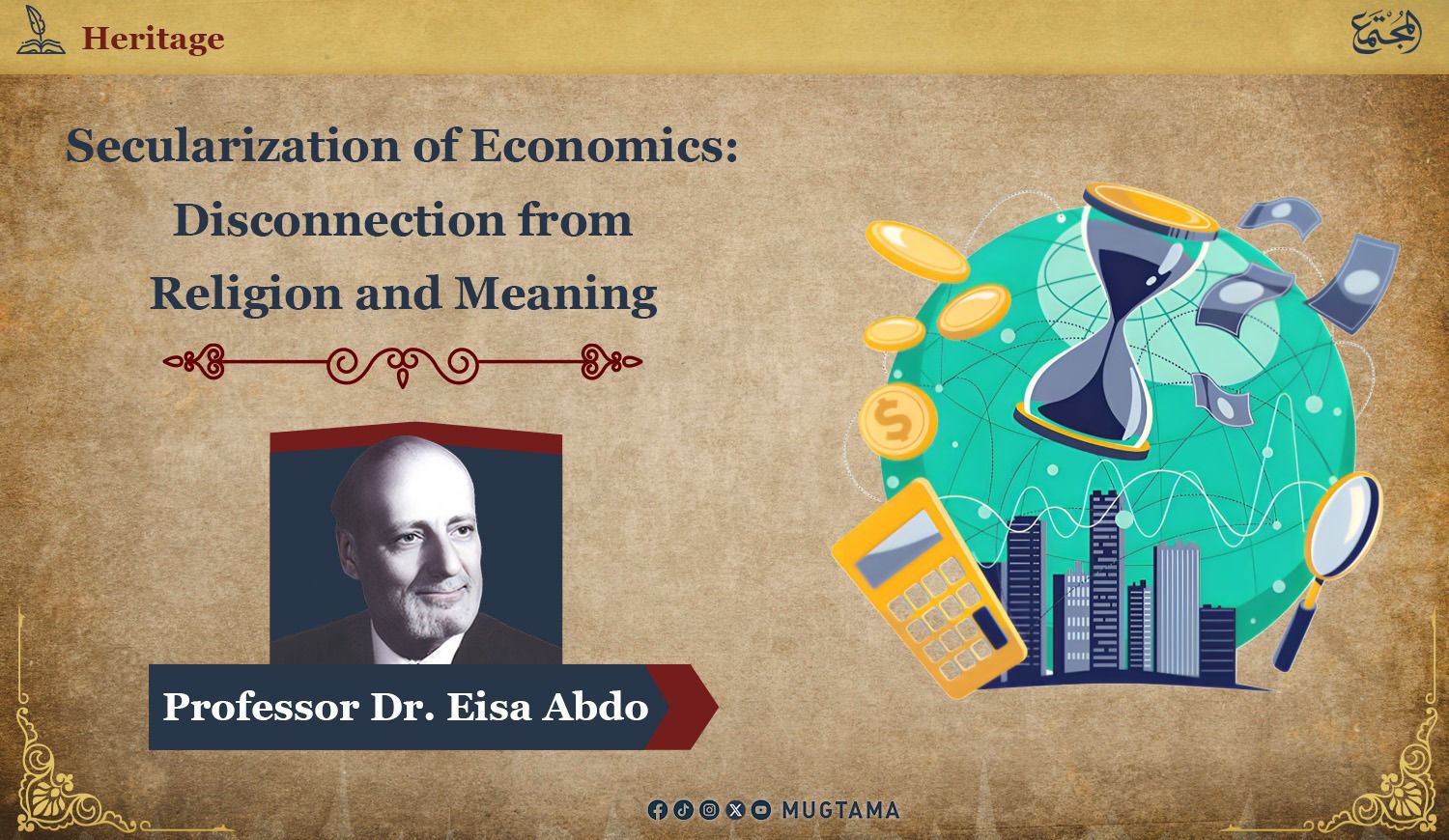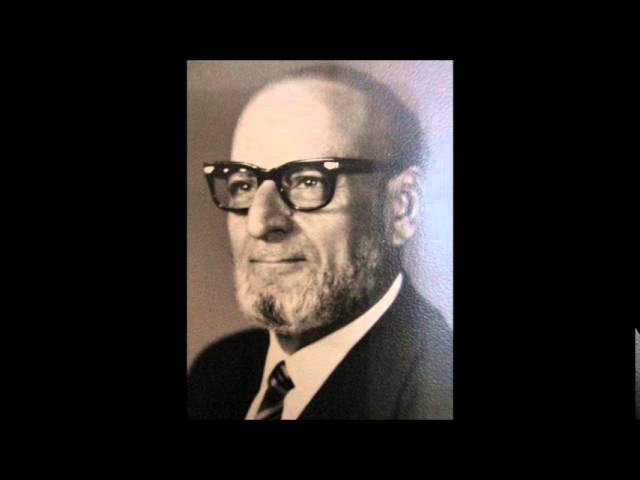Secularization of Economics: Disconnection from Religion and Meaning

Professor Dr. Issa Abdo
------------
Heritage
Trustworthy researchers in this field, especially writers from
the advanced industrial West, agree that the year 1789 marks the early
beginning of economic studies using a scientific methodology. They have specific reasons for this choice, which will be
mentioned in due course.
They also agree on a few points that are worth focusing on and
understanding as much as possible:
- The
Origins of Economics
They say that the ancient origins of the study of wealth and
its problems are undoubtedly rooted in ancient human heritage. They mention a
group of famous Greek philosophers and legislators, such as Plato, Aristotle, Xenophon, and Solon, who were well-known among scholars.
They then distinguish between this ancient period and the era that began with
both the Industrial and French revolutions. They briefly touch on the period in
between, mentioning only a few studies on the eras of successive heavenly
messages and the Middle Ages. They stop at the past two hundred years and state
that this is when the initial stages of economics began.
- The
Nature of Economics
The second point on which reliable scholars agree is that
economics is a branch of a larger body of integrated studies, including ethics,
logic, philosophy, sociology, psychology, politics, and systems of governance.
Despite the increasing use of analytical methods and mathematics in the study
of economic phenomena, a number of globally respected researchers are critical
of this trend and deny its usefulness. Some even call it a "scientific
decline" and strongly argue that economics is fundamentally a humanistic
study. They believe that the introduction of mathematics into this field of
knowledge has not justified the effort spent over decades, unlike in the
sciences of solids and energy where fixed physical elements are dominant or the
only ones in the field.
- The
Convergence of Economic and Social Phenomena
It is also agreed upon that a number of scientific facts and social phenomena that have influenced the behavior of individuals
and groups over the past two hundred years have progressed together. Since the
fall of the Bastille, and with the beginning of recent and contemporary
revolutions, new developments have emerged in the areas of energy, natural
resources, and how people have benefited from unprecedented and continuous
technological progress.
Thus, you see phenomena influencing one another. The gaps
between them may narrow or widen slightly, but the progress of society and
industry is inseparable.
For example, they mention increased use of natural resources
with lower costs, expanding markets, and advances in transportation. They
mention all of this alongside the rise in individual and collective
consciousness and people gaining political rights, including the formation of
groups, unions, then parties and governments. They also note the acquisition of
what is described as new rights for women, such as combining household duties with earning a living. They
also mention the new ties that have emerged between individuals and groups,
unlike what was known before these revolutions. There is also the debate
surrounding private property, the new scale and forms of businesses, and the
intellectual constraints placed upon them.
These are just a few of the issues that writers agree are
interconnected, forcing scholars to recognize the link between the value added
to materials through labor and the workers' demands for a voice in public
affairs, then seats in representative councils and governments. When
legislative and executive powers have come together under a specific economic
ideology or philosophy, things that once seemed absurd have been swept away by
the winds of change—such as the freedom to choose one's work, the sanctity of
private property, and the right of inheritance. Researchers also mention the
direct links between market competition on the one hand, and the evolution of
international diplomacy and forms of cooperation on the other—or consolidation,
conflict, and armed struggle, which redirects resources and energies
(originally intended for human well-being) toward technological advancements in
the production of destructive weapons.
- Disconnect
from Religion
Researchers also widely agree that economic studies are
disconnected from religion. This is a point that particularly concerns us here
in the Arab East and the Islamic world in general, and we must attribute it to
those who claim it. They also agree that economic reality is not precisely
definable; it is a beloved fantasy for every researcher, yet they are unable to
make it accessible to students.
This is what researchers claim about economics when it's
isolated from religion. But we say: words were not too heavy to bear the
livelihood, but rather it is the souls that are too narrow for the truth and
cannot bear it. This happens when the human mind, without the Lord of
people—God forbid—takes it upon itself to establish rules for humanity. But
this is how it began with the French Revolution and its aftermath, with the
winds of change spreading over a wider area.
Economic reality is not from a metaphysical world. It is from
this world we live in. We must be aware that it flees from human society every
time it tries to get closer to it, whereas mathematical equations, natural
laws, and the properties of things become more precise and accessible to the
human mind and skillful hands. This is why people in our time have imagined
that they have mastered the Earth and are close to mastering space. As for the
economic reality for which lives have been spent over the past few generations,
its description still falters on the lips.
We say that it is the realization of well-being for the
majority of people with the fewest sacrifices. We say that it is the human
balance that does not adhere to a commercial, financial, or balance of payments
scale. We say that it is the fair price and the wage that preserves the
worker's dignity as a human being. It is the provision of job opportunities for
everyone who is able and willing to work. It is society's care for a family if
its provider dies, because during their life they contributed to building the
structure, paving the way, or increasing prosperity with the service or product
they produced. It is providing security for wealth, honor, children, and all
the freedoms in which all people are equal.
But can people be fair to others?
This is the question that researchers have taken on, or, let's
say, it is the experience that humanity has gone through for two hundred years,
with libraries overflowing with millions of pages in various forms of articles,
lectures, statistics collected by amateurs, programs by reformers, politicians,
and advocates of conquest and plundering the resources of others, election
speeches, party platforms, state policies, and finally, academic references and
research methods in universities!
All of this mass of information is called "the science of economics" to the extent that some thinkers have become
severely frustrated with it. This led to the East's revolution against Western
theories and the West's denial of its emerging thought. Then we come from this
environment, so rich in its heritage, and ask the same questions they do: Where
does this science begin, where does it end, and when will it stabilize?
To answer these three points that combine into a single
question, we say that the matter will stabilize when we separate science from
thought and opinion. Science has characteristics that ensure its stability and
richness by adding new knowledge to pre-existing principles. However, thought
can follow whims, authority, and transgression, and then it disappears, leaving
a void (as they say), which is then filled with new whims and opinions. That is
why we said that these are studies that address the famous schools and their
ideas and opinions. What is known as the doctrines, philosophies, and policies
of the past two hundred years are the origin of what humanity is suffering from
to this day. As for economic reality, it has become more distant and obscure due
to these efforts because it has drowned in the crowds—the crowds of people who
wanted to set their own rules for human affairs and wanted to deny the message
of the heavens.
Published
in Al-Tawhid Magazine, Muharram 1393 AH












